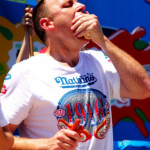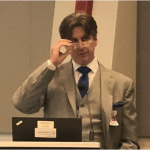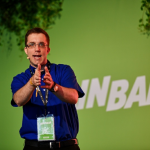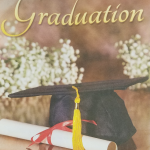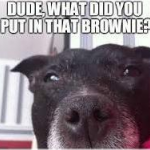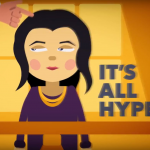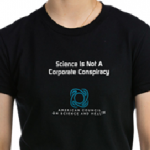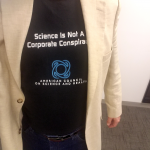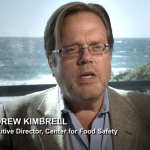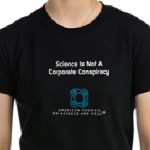1. How ridiculous is the annual hot dog eating contest at Coney Island? So ridiculous that the judges miscounted wildly on the number of hot dogs and no one noticed. Until winner Joey Chestnut insisted he had broken his own world record and eaten 74 in 10 minutes and the judges had to go back and review the 10 minute tape and actually count this time. And he was right, they were off by a whole plate, not just for him, but for the second place finisher. Viewers had been switched over to a gripping Cornhole match by then, so they didn't realize a world record had been made.
ACSH In The Media
It was a busy recent stretch for the American Council, working to continually promote the need for sound-science decision making.
1. The BBC was into poop - the still-ongoing trend of public serial poopers - and linked to work by Dr. Jamie Wells on it. That wasn't the only place this fad was noted.
Thirty five years after graduating, ACSH President Hank Campbell returned to North Penn-Liberty High School in Pennsylvania to give the commencement speech honoring the Class of 2018. While noting that much has changed since he left, the basic challenges facing young people today have not.
1. Tech Times seeks to inject some science into police violence discussions and uses our work to do it. In the ongoing debate over gun ownership, a lot of papers are produced but not all of them make sense. "Virtual lives lost" is one such metric. Like virtual water, virtual money, and virtual emissions, pretend assets can't be utilized. If someone dies young, is is correct to assume they will live to be 80? Not really, which is why average life expectancy is a flawed notion. And if a paper is publicized in the political The Guardian, even more suspicion is warranted. To offset their bias, John Diente used the non-partisan work of Dr.
We started a media firestorm in the Pacific Northwest, and we set the record straight on chemicals for an agricultural trade publication. And we also took a peek into a baseball dugout to see how statistical analysis – personally delivered to field managers by stat geeks – is continually reshaping the game.
We strive to make a difference, and when we do other organizations often take note. Here's a look at some of our recent pick-up. Take a look.
Here's some of what we've been up to in the past few days, in the media and around Washington, DC.
1. NPR used us to fact check the claims of a California judge who declared that coffee must come with a cancer warning - because the beans are roasted and IARC has declared everything a carcinogen. Various regional NPR sites also carried us. The links are at the bottom.
1. Just a week after we taunted anti-science activists for collaborating with Russian propaganda outlets to undermine US agriculture supremacy - those capitalist pigs will pay for their crimes against sugar beets now, eh, comrades? - we were at it again, which means Russia Today and Sputnik will be hammering away at their political sympathizers in the organic food and solar power industry to hack our Wikipedia page and send out Tweets noting that 35 years ago we got a small grant from Chevron, or whatever they are doing to try and undermine science this week.
ACSH President Hank Campbell sat on a Q&A panel for an anti-agriculture film called "Poisoning Paradise," knowing they were going to yell about corporate conspiracies. And he thinks everyone who cares about science should. Not for the activists who want farmers extinct, but for the people who walk out when they see how environmentalists behave. Because those people can be reached.
We were pleased to see that we're getting picked up by various media outlets, and in those across the political spectrum.
